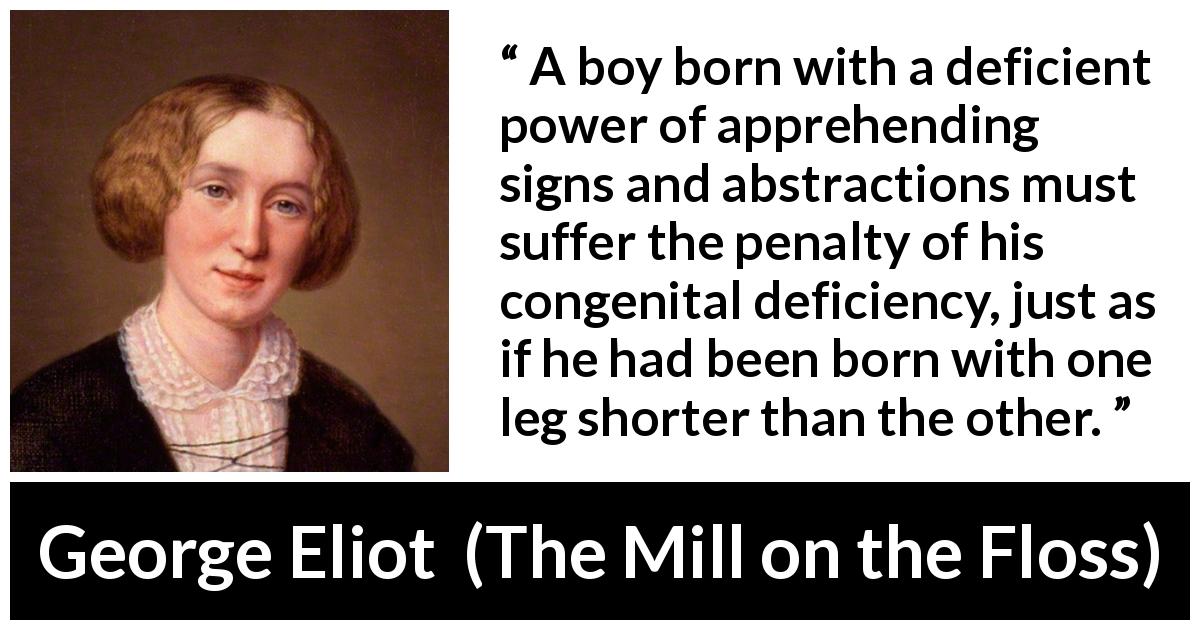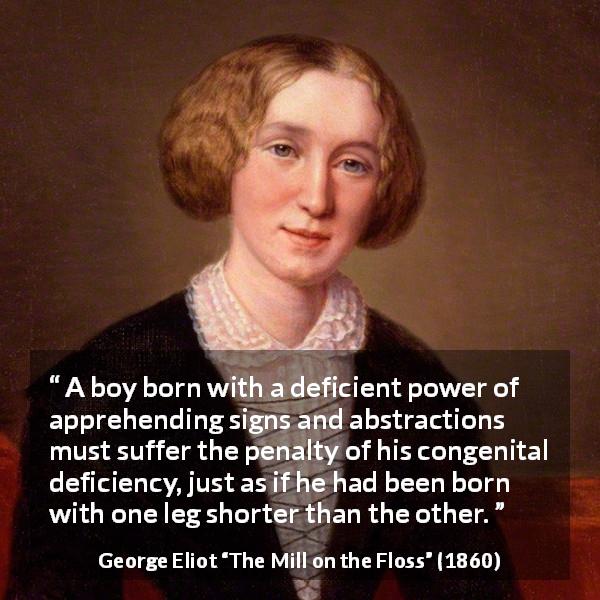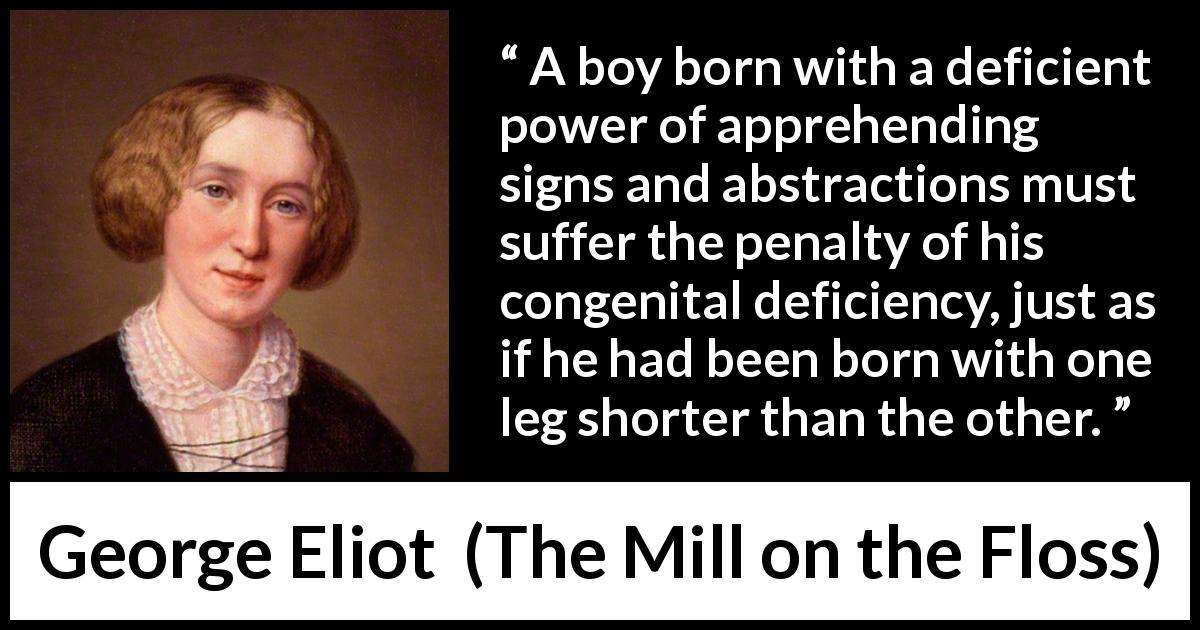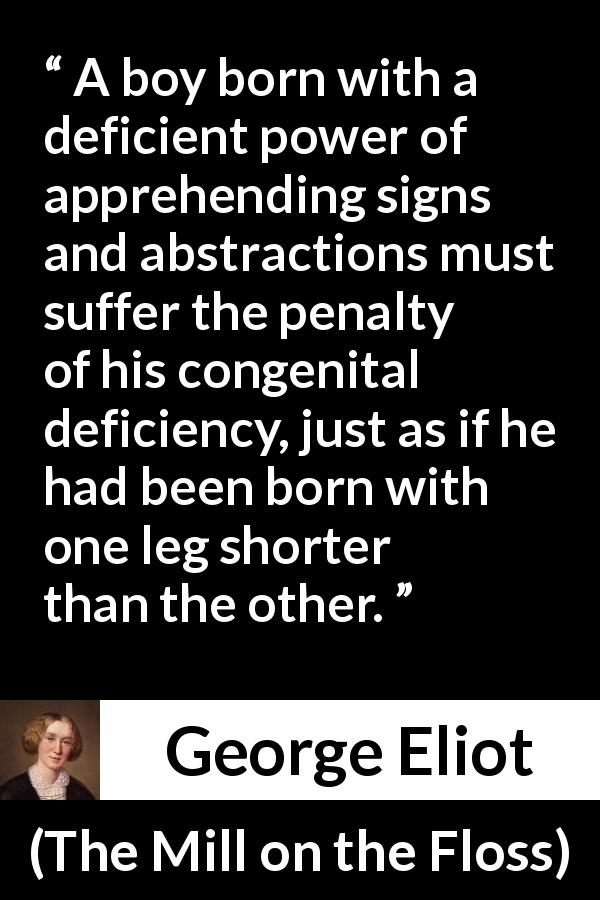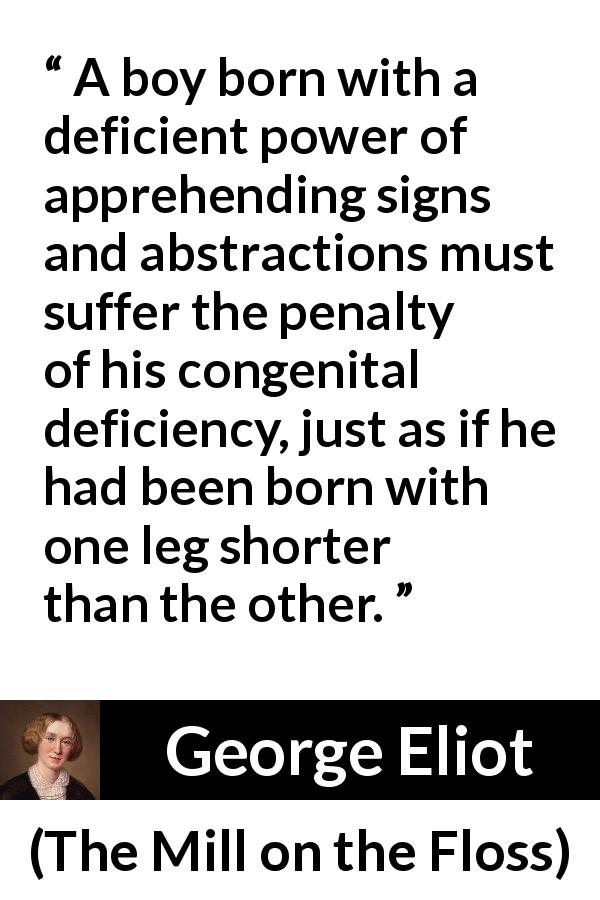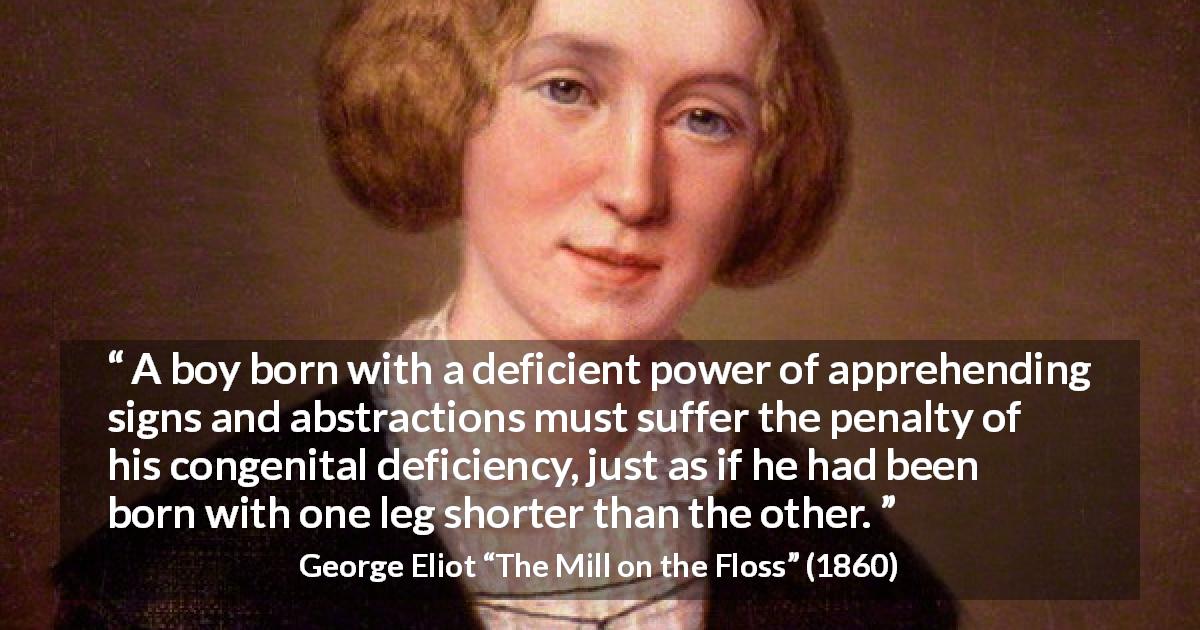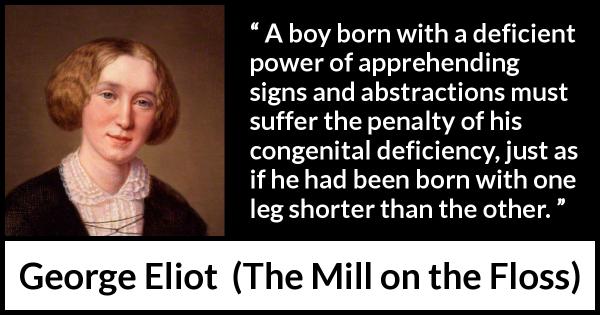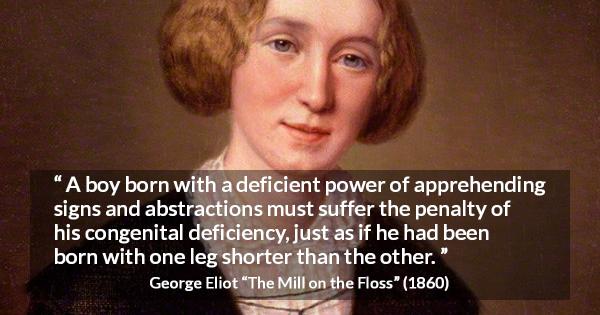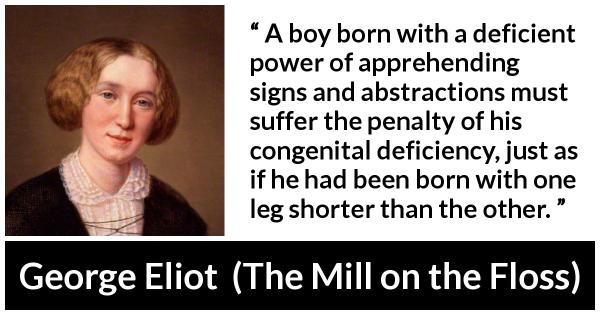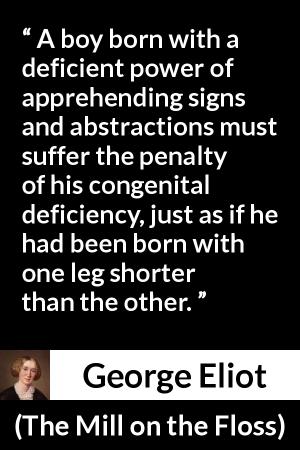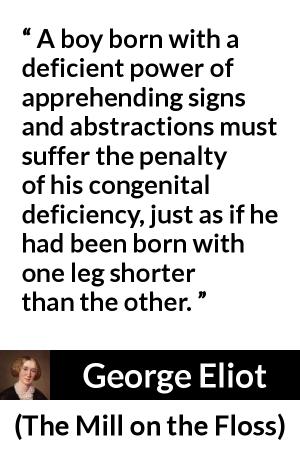“ A boy born with a deficient power of apprehending signs and abstractions must suffer the penalty of his congenital deficiency, just as if he had been born with one leg shorter than the other. ”
George Eliot, The Mill on the Floss (1860). copy citation
| Author | George Eliot |
|---|---|
| Source | The Mill on the Floss |
| Topic | cleverness deficiency |
| Date | 1860 |
| Language | English |
| Reference | |
| Note | |
| Weblink | http://www.gutenberg.org/files/6688/6688-h/6688-h.htm |
Context
“Mr Stelling was a broad-chested, healthy man, with the bearing of a gentleman, a conviction that a growing boy required a sufficiency of beef, and a certain hearty kindness in him that made him like to see Tom looking well and enjoying his dinner; not a man of refined conscience, or with any deep sense of the infinite issues belonging to everyday duties, not quite competent to his high offices; but incompetent gentlemen must live, and without private fortune it is difficult to see how they could all live genteelly if they had nothing to do with education or government. Besides, it was the fault of Tom's mental constitution that his faculties could not be nourished on the sort of knowledge Mr Stelling had to communicate. A boy born with a deficient power of apprehending signs and abstractions must suffer the penalty of his congenital deficiency, just as if he had been born with one leg shorter than the other. A method of education sanctioned by the long practice of our venerable ancestors was not to give way before the exceptional dulness of a boy who was merely living at the time then present. And Mr Stelling was convinced that a boy so stupid at signs and abstractions must be stupid at everything else, even if that reverend gentleman could have taught him everything else.”
source
